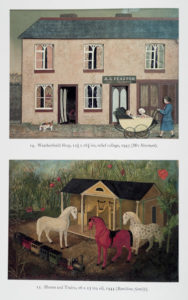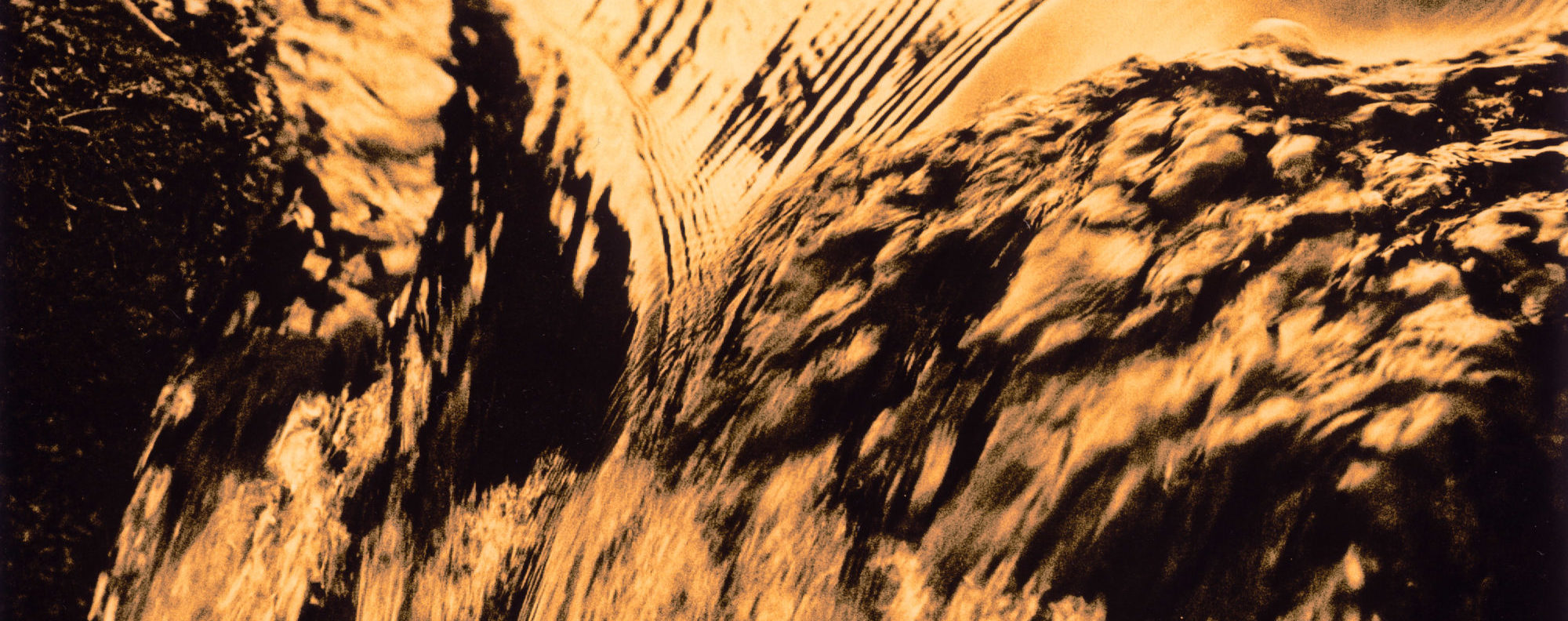She was always ambitious, and supported by Henry’s unfailing devotion she went on working even after she became bedridden. She amazed all her friends by her determination, courage and unquenchable gaiety. She knew her illness was mortal yet declared that this was the happiest time of her life. It was certainly the most fruitful since her student days.

Tirzah’s small oils, painted very smoothly and with a fine brush, have as little in common with the work of her contemporaries as her wood engravings and marbled papers. In a few of her pictures, Boats on Cromer Beach, Canna in the Hebrides, Whither will you Wander (a delightfully particularised study of geese in an Essex field), the portrait of Peggy Angus in her sitting room at Adelaide Road the subject is rendered with the utmost fidelity to nature. The clear colour, the precision of the miniature like execution and the artist’s sharp eye for telling detail inform these little paintings with an enhanced sense of reality. The brilliant technique, smooth texture and jewel like colour of Tirzah’s work play a specially significant part in the pictures of toys among flowers or set against a distant landscape.

These compositions recapture in all its freshness the relationship of an imaginative child with its dolls, trains, toy soldiers and farm animals and conjure up a magical child’s world of closely seen plants. A doll steps forward with her little muff from a thicket of bright tulips; toy trains run round a toy stable and toy horses in a landscape of spear shaped leaves and scarlet tulips; a toy soldier lies in the path of a toy steam engine watched by a maid from an upper window in a doll’s house set against a sombre river scene reflecting the mood of the painting (the last two illustrated here). The image, though more dramatic, recalls that of the dumb grenadier buried under the lawn in the familiar poem by R. L. Stevenson. He was another who never lost his childhood’s vision.
But Tirzah’s toy peopled world sometimes has another dimension. The relationship of figures and plants, of toys, human beings and the real world shifts so that we are confronted by a domain that is stranger and more disturbing than the child’s realm of dolls and toy horses amid flowers and grasses. It is only slightly alarming to see a kitten dwarfed by pansies, but when the occupants of a room in a doll’s house turn out to be portraits of the artist and her husband, Tirzah in bed, Henry in a rocking chair with the stiff horizontal legs of a Dutch doll, the humour of the idea is powerless to stifle a feeling of unease and disjointedness. And in the pictures of diminutive human beings lost in the giant growth of idyllic gardens and bosky landscapes, the altered proportions of figures and settings strongly suggest the presence of lurking danger. The tiny figure running down a path between huge, minutely painted bushes from a cottage submerged in vegetation in the brooding composition called Hide and Seek is surely engaged in more than a game. The white-suited pygmy forms of the orchid hunters of Brazil in the picture of that title tread in an impeccably painted but frightening jungle of great convolvulus leaves half as big as themselves and thick ropy creepers menaced by the monster orchids they have come to seek. The eerie painting of the moonlit encounter of a gargantuan frog and an amorphous leviathan could have seemed like part of Disneyland but in fact is charged with nightmare dread. The pallid figure of the woman in Spanish Lady standing against a threatening, owl haunted sky among tree high daffodils was inspired by a piece of pottery, but the anguished eyes are those of a living person and the relative scale of the woman and the flowers conveys an overwhelming feeling of disquiet and sadness. Tirzah’s world of green leaf and grass tassels and its surreal scale remind us of Richard Dadd’s faery, paradisial scenes. His remarkable art was little noticed until recently and it is unlikely that Tirzah saw his work. She had too much humour and gaiety ever to arrive at such furious and despairing imaginings as Dadd’s, but the kinship is there, and like Dadd she achieved in a small way some things that are astonishing and without parallel.
Written by Olive Cook. © The Whittington Press
